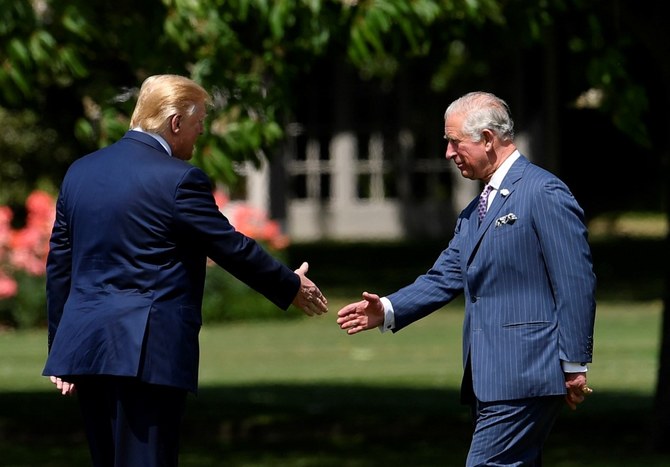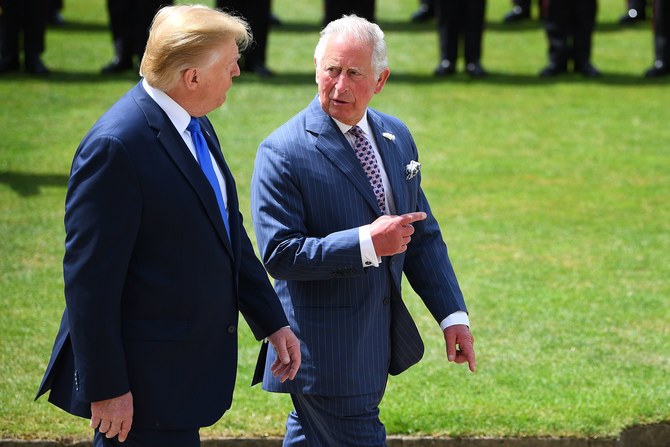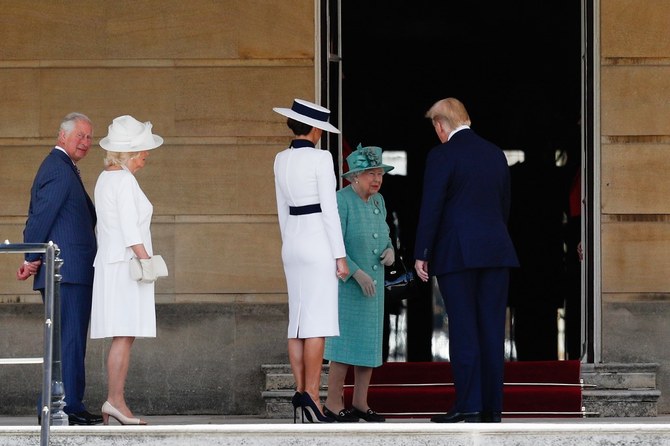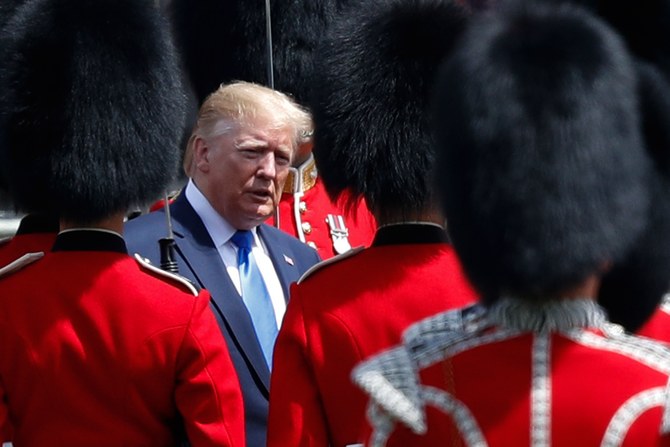LONDON: President Donald Trump met with Queen Elizabeth II Monday during two-day visit to Britain that’s meant to strengthen ties between the two nations, although the trip was immediately at risk of being overshadowed by Brexit turmoil and a political feud with London’s mayor.
Trump and first lady Melania Trump flew to Buckingham Palace in Marine One, landing on a lawn where they were greeted by Prince Charles and his wife Camilla. They received a royal gun salute as they walked to the palace where the queen greeted the president with a smile.
Even before Air Force One touched down north of London, Trump unleashed a Twitter tirade against London Mayor Sadiq Khan, leader of the world city where Trump will stay for two nights while partaking in a state visit full of pomp and circumstance.
The move came after a newspaper column in which Khan said Trump did not deserve red-carpet treatment in Britain and was “one of the most egregious examples of a growing global threat” from the far-right to liberal democracy.

“@SadiqKhan, who by all accounts has done a terrible job as Mayor of London, has been foolishly “nasty” to the visiting President of the United States, by far the most important ally of the United Kingdom,” Trump wrote just before landing. “He is a stone cold loser who should focus on crime in London, not me.
The president added that Kahn reminded of the “terrible” mayor of his hometown, New York City Mayor Bill de Blaiso though “only half his height.” De Blaiso, a Democrat, is a longshot candidate in the 2020 presidential race. Khan supporters have previously accused Trump of being racist against London’s first Muslim mayor.
.@SadiqKhan, who by all accounts has done a terrible job as Mayor of London, has been foolishly “nasty” to the visiting President of the United States, by far the most important ally of the United Kingdom. He is a stone cold loser who should focus on crime in London, not me......
— Donald J. Trump (@realDonaldTrump) June 3, 2019
The president then added a few warm words for his hosts, tweeting that he was looking forward “to being a great friend to the United Kingdom, and am looking very much forward to my visit.”
But beneath the pomp and ceremony, Britain is in turmoil with Prime Minister Theresa May due to step down within weeks over her handling of her country’s exit from the European Union.

Trump weighed in on the divisive issue of Brexit, declaring before he arrived that Britain’s former foreign minister Boris Johnson would make an “excellent” choice to succeed May.
In a round of British newspaper interviews, he also recommended her successor walk away from talks with Brussels, refuse to pay Britain’s agreed divorce bill and leave the EU with no deal.
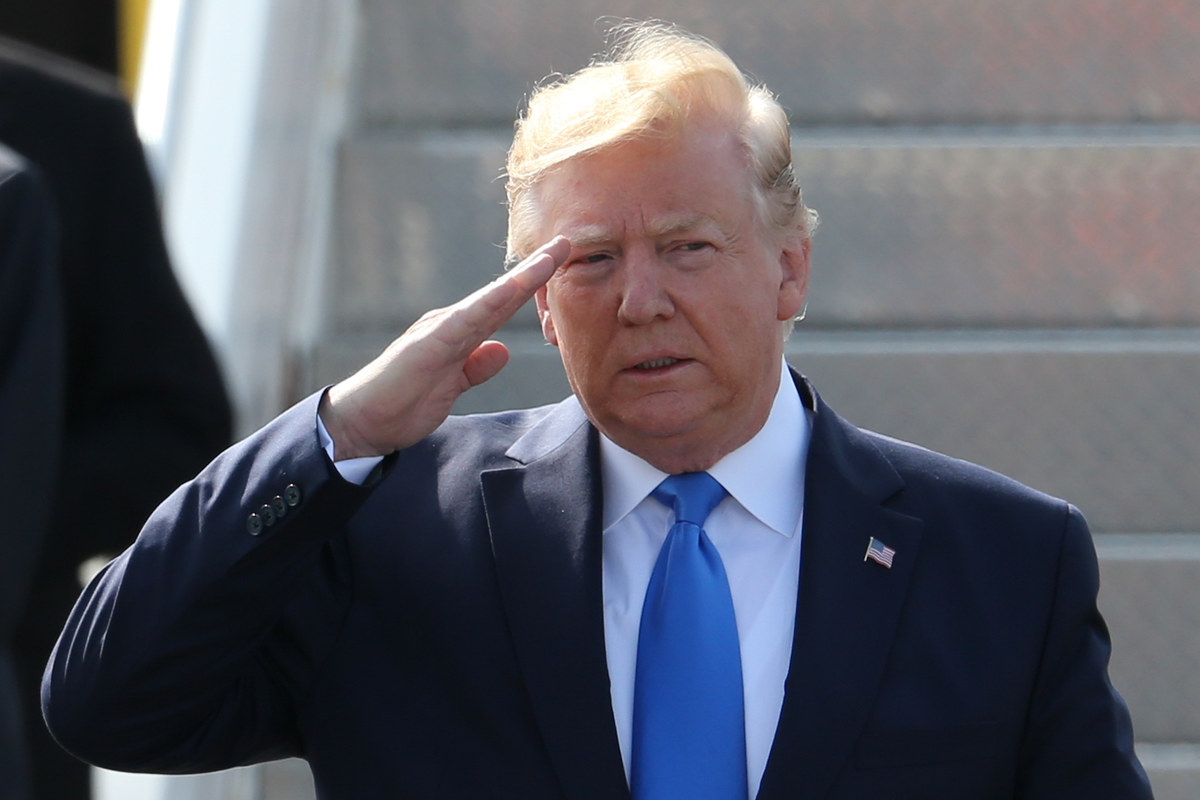
US President Donald Trump saluted the honor guard as he walked on the tarmac after disembarking Air Force One at Stansted Airport, north of London. (Isabel Infantes/AFP)
The UK-US “special relationship” was already under strain over different approaches to Iran, the use of Chinese technology in 5G networks, climate change, and Trump’s personal politics.
Labour’s Khan has led opposition to the three-day visit, writing a newspaper article on Sunday in which he compared the US leader to European dictators from the 1930s and 1940s.
“Donald Trump is just one of the most egregious examples of a growing global threat,” Khan wrote.
His spokesman called Trump’s tweets “childish” and “beneath the president of the United States.”
Huge protests are being organized in London, with organizers crowdfunding a bright orange “baby Trump” blimp depicting the US leader in a diaper — aiming for an even larger version than the one flown during his visit last year.
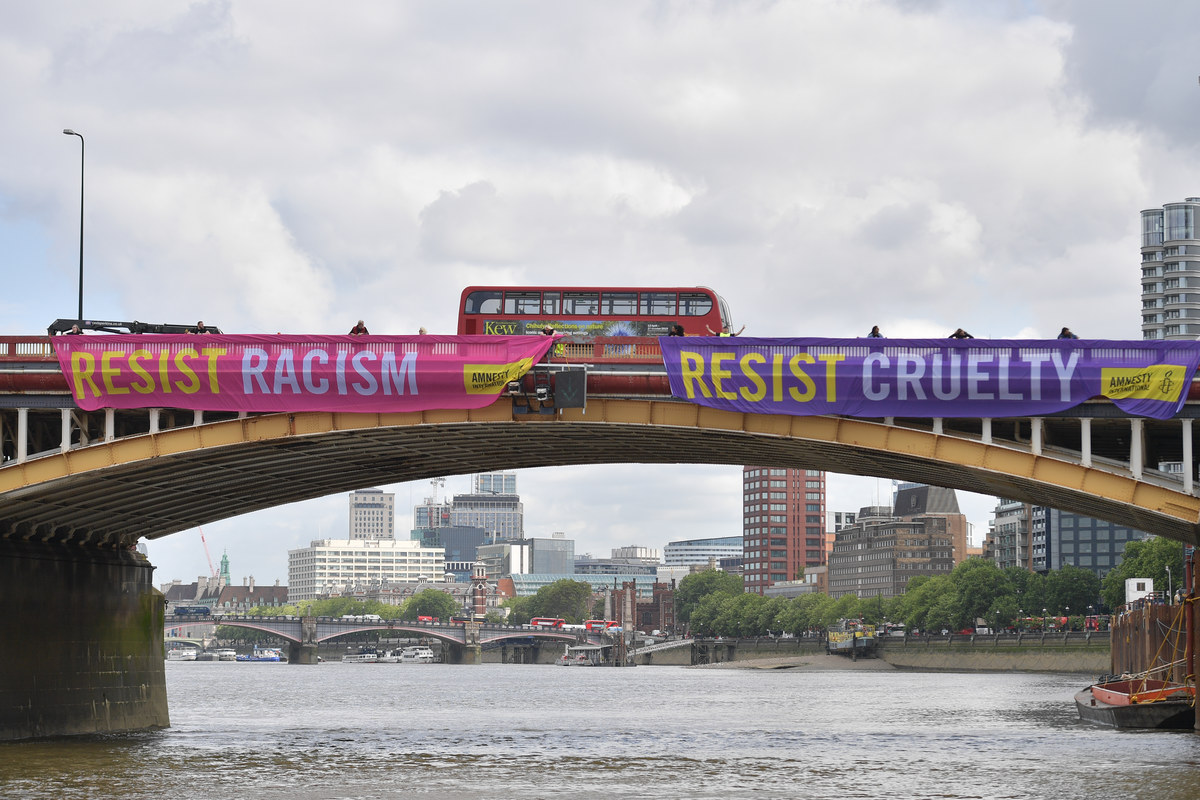
Banners created by UK based human rights organization Amnesty International and unfurled over Vauxhall Bridge in central London on June 3, 2019 to coincide with the UK State Visit of US President Donald Trump. (Daniel Leal-Olivas/AFP)
The leaders of Britain’s main opposition parties and the speaker of parliament are boycotting the state banquet on Monday night.
In an effort to brush past the controversy, May and Trump are expected to emphasize the wider benefits of their old alliance when they hold talks at Downing Street on Tuesday.
On Wednesday, they will join other world leaders in the English port of Portsmouth to commemorate 75 years since the D-Day landings, which changed the course of World War II.
“Our relationship has underpinned our countries’ security and prosperity for many years, and will continue to do so for generations to come,” May said ahead of the visit.
May announced her resignation last month after failing to get her Brexit deal through parliament and twice delaying Britain’s EU departure.
She will formally quit as her Conservative party’s leader on Friday, but will stay on as caretaker prime minister while her successor is chosen.
Three years after the referendum vote for Brexit, Britain remains divided.
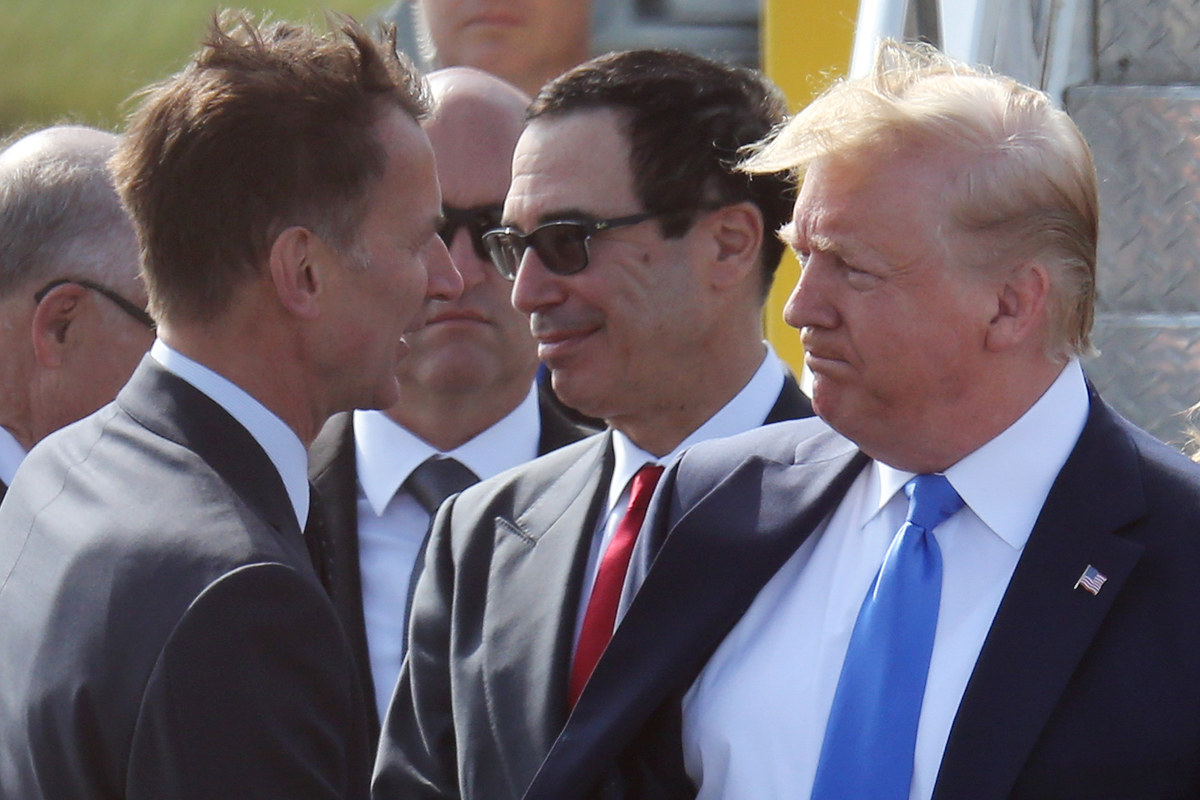
Trump was welcomed to Britain by British Foreign Secretary Jeremy Hunt. (AFP)
Trump recommended the new government make a clean break with the EU if necessary, adding that there was “tremendous potential” for Britain to trade with his country after Brexit.
Causing more potential embarrassment for May, Trump said he might also meet with Johnson and pro-Brexit leader Nigel Farage during his UK visit.
“They want to meet. We’ll see what happens,” he told reporters before he left the United States.
May was the first foreign leader welcomed to the White House after Trump’s election victory in November 2016, but their relationship has not always been rosy.

They have clashed over Trump’s migration policies, while Britain still backs the Iranian nuclear deal and the Paris climate accord, both of which Trump has abandoned.
Washington has also been putting pressure on Britain to exclude Chinese tech giant Huawei from its 5G network over security concerns, suggesting it might harm intelligence-sharing.
Trump’s first official visit to Britain last year was overshadowed by criticism of May’s approach to Brexit, as well as large demonstrations.
He is not expected to meet Prince Harry and his American wife Meghan Markle, after saying her previous criticism of him was “nasty.”


